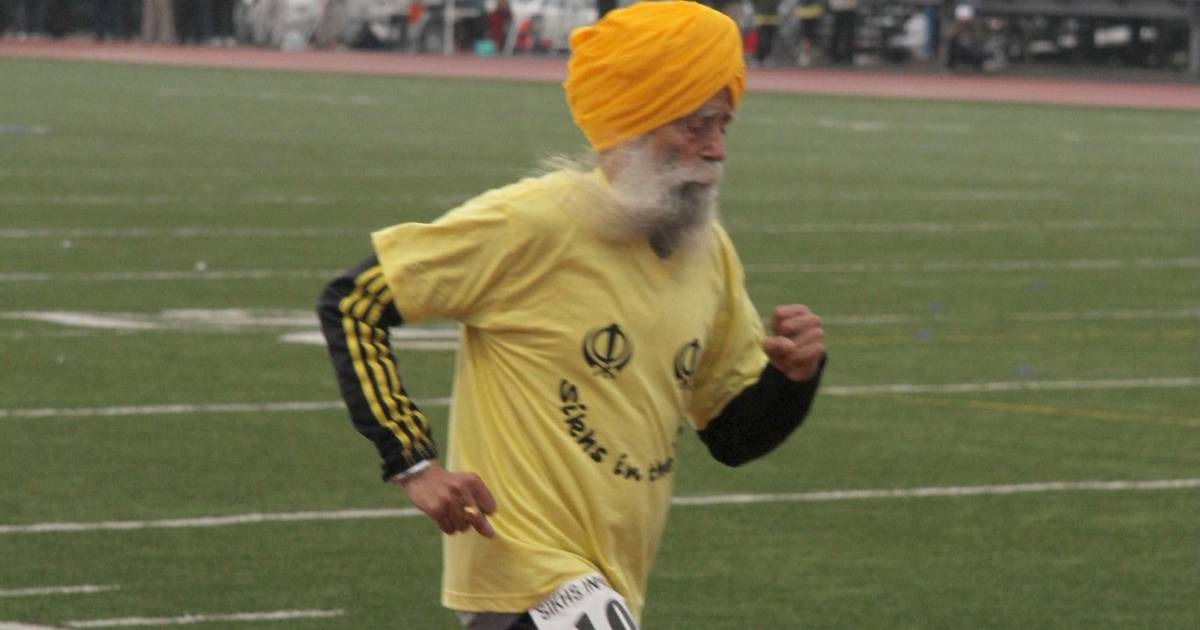Fauja Singh, the British-Indian athlete and marathoner, who inspired millions of people with his late-in-life running achievements, has died at the age of 114.
Singh, who was widely believed to be the world’s oldest marathon runner, was struck and killed in a hit-and-run accident on Monday while crossing a road in his native village near Jalandhar in Punjab, India.
Local media reported that Singh sustained severe head injuries in the incident and was rushed to a nearby hospital, where he later succumbed to his injuries.
In 2011, Singh became the oldest man to run a full marathon at the age of 100 in Toronto, although this achievement was not officially recognized by Guinness World Records due to a lack of a birth certificate. Singh had a British passport, which listed his birth date as April 1, 1911, while a letter from Indian government officials stated that birth records were not kept in 1911.
He began running at the age of 89 and went on to complete nine full marathons between 2000 and 2013, when he retired. Singh’s best time was five hours and 40 minutes at the 2003 Toronto Marathon. His final competitive race was a 10-kilometre run in the Hong Kong Marathon in 2013, which he completed in one hour, 32 minutes, and 28 seconds.
His running club and charity, Sikhs In The City, confirmed his death in a statement and announced that upcoming events would commemorate his life.
“It is with great sadness that we can confirm our icon of humanity and powerhouse of positivity Fauja Singh has passed away in India,” the statement reads.
“His running club and charity Sikhs In The City will be devoting all of its events until the Fauja Singh Birthday Challenge on Sunday 29 March 2026 to celebrate his life of success and achievements. We will be doubling the efforts to raise funds to building the Fauja Singh Clubhouse on the route in Ilford where he used to train.”
Indian Prime Minister Narendra Modi described Singh as an “exceptional athlete with incredible determination.”
After his wife Gian Kaur died in the early 1990s, Singh moved to London to live with his eldest son, Sukhjinder. During a later trip to India, he witnessed the accidental death of his younger son, Kuldip, who was killed by a piece of corrugated metal blown by the wind while they were inspecting farmland during a storm.
Following this loss, Singh began running as a way to cope with grief. He joined a group of Sikh runners in London and later met Harmander Singh, who became his coach.
After retiring from racing, he expressed hope that people would continue to remember him, adding that he wished to still be invited to events “rather than forget me altogether just because I don’t run anymore.”


